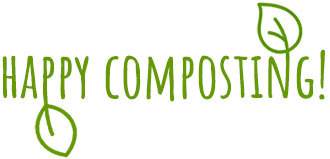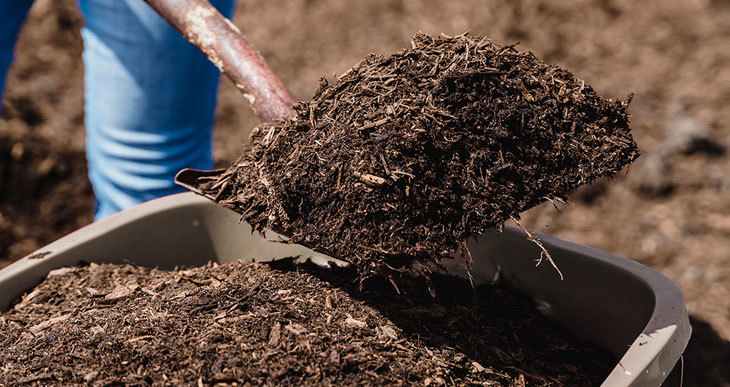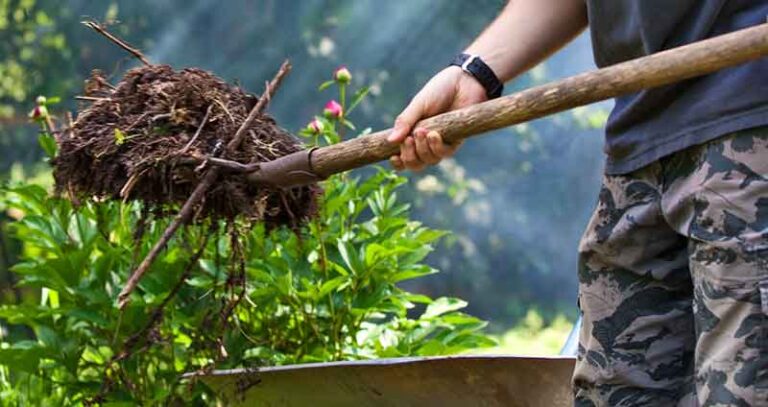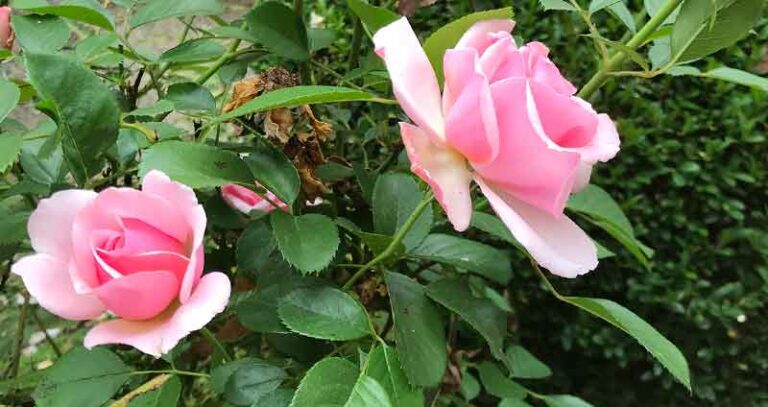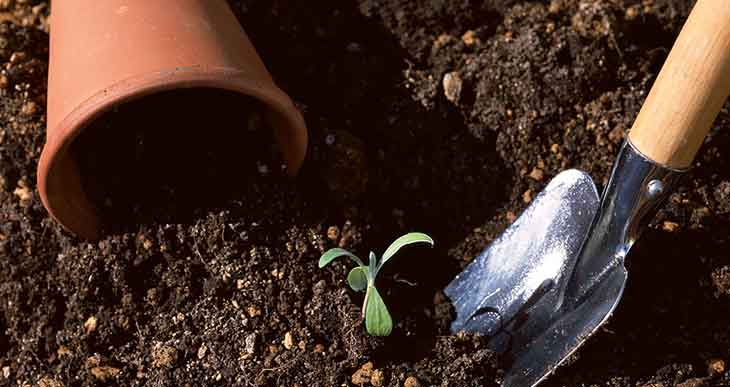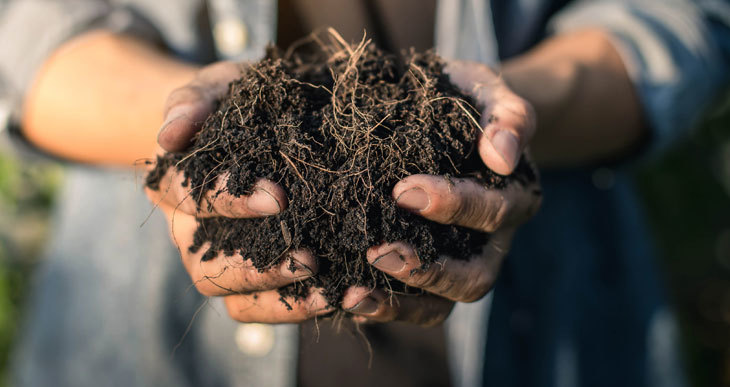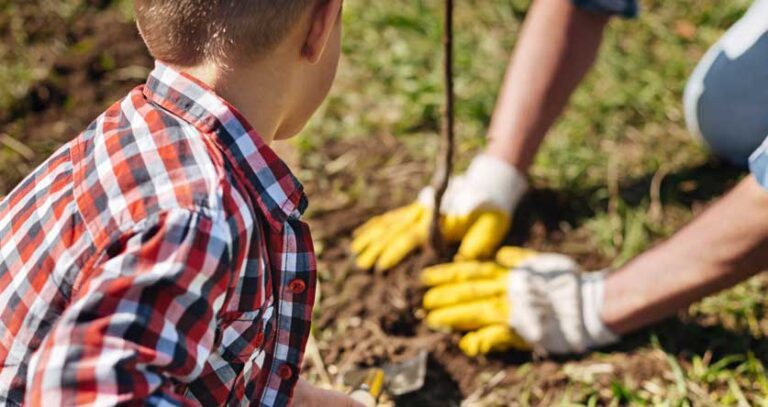How To Use Compost (Every Way Possible!)
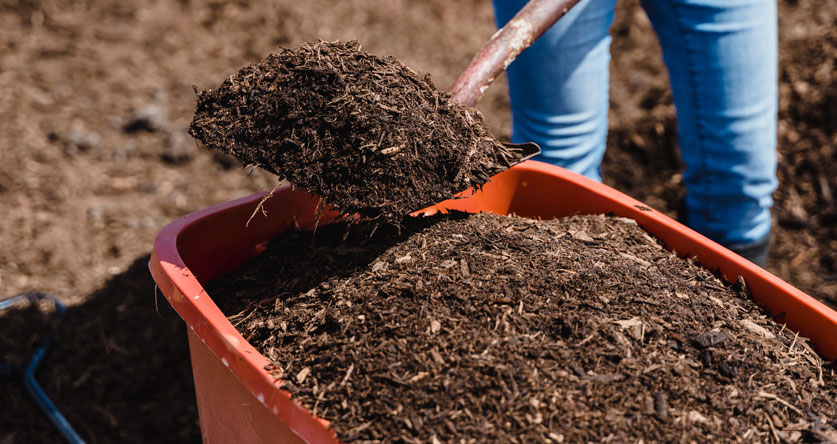
Your mountain of organic waste has finally transformed into a precious heap of black gold. Learn how to put your compost to good use. You’ll soon realize that is the secret ingredient to a spectacular, thriving garden and bountiful harvests.
Compost serves multiple purposes and greatly enhances indoor plants or an outdoor garden. It can be used as a lawn top-dressing, compost tea, mulch for no-till gardens, or mixed into soil for container plants, plant food, and soil amendment. Compost improves plant nutrition, resilience, and vitality.
Are you standing in front of your first pile of finished compost, wondering exactly where, when, and how you should use it? Discover all the incredible ways you can use compost to add nourishment and vigor to your soil, plants, and garden:
What Can Compost Be Used For?
Compost is useful wherever there is soil! It is a precious asset in the gardening community, which is why it is fondly referred to as black gold. The usefulness of compost stems from the fact that it’s loaded with beneficial nutrients and microorganisms that enrich the soil. Giving you healthy, resilient, and flourishing plants.
Here are a few brilliant ways to make the most of your compost:
Lawn Top-Dressing
Around early Fall or late Spring, sprinkle a thin layer of compost over new or existing lawn no more than half an inch deep. It nourishes the soil, revitalizes dry patches, prevents weeds, and promotes lush and healthy lawn growth.
Organic Mulch
Mulch will improve the quality of your soil and protect your plants in the following ways:
- Retains moisture – which means less need for watering!
- Adds visual appeal to the landscape
- Enriches the soil and prevents erosion
- Deters weeds
Remove any weeds and spread a thick layer of compost over the exposed soil, especially around the base of plants. Then, add another type of mulch, such as chopped leaves, to keep the compost moist and biologically active. Compost used as mulch will provide optimal growing conditions for your plants or produce.
Potting Soil Mix
Compost can be mixed into potting soil to replenish and enrich the growth of container plants. When mixing soil and compost for container plants, use the recommended balance of 4 parts soil to 1 part compost.
Natural Plant Food
Mix compost into the soil in your garden to create a healthy, fertile, and robust growth environment. Herbs, vegetables, and plants will flourish and thrive with the additional nutrients and minerals.
Compost should not be treated as a fertilizer substitute but as a plant’s nutritional supplement.
Compost Tea
Plants benefit from probiotics too!
Compost is steeped in water to produce compost tea. This liquid is obtained by extracting nutrients and beneficial microorganisms, such as bacteria and fungi, from the organic matter in the compost.
This nutrient-rich brew can be sprayed directly onto leaves or drenched in soil. You will get the benefits of compost directly to the roots of your plants.
Compost tea helps combat plant disease, improves plant health, and reduces the constant need for chemical fertilizers.
Is It Okay To Just Put Compost On Top Of the Soil?
Looking for a quick and effortless way to use your finished compost? Try it as an organic mulch for the soil. This is ideal for no-dig or no-till gardening fans!
Compost applied as mulch will prevent weed growth and amend soil health. Spread a thick layer of compost directly over the exposed soil.
Relax and allow nature to do the rest! Rain, worms, and other organisms will do the hard work of breaking down the compost and mixing it into the soil.
In fact, most gardening experts recommend spreading compost over the soil rather than mixing it in. This is because digging will disrupt the delicate mycorrhizal fungi, essential for helping plants access nutrients deep in the ground.
How Do You Mix Compost Into Soil?
Firstly, ensure your compost has completely decayed before blending it with your soil. Next, thoroughly weed your garden and maintain a pest and rodent control plan for optimal and lasting results.
Follow these general guidelines for mixing compost into the soil:
(Follow this link for a more detailed guide to adding compost to soil…)
Before Introducing New Plants, Vegetables, Or Lawn
Mixing compost into the soil is the best method for establishing new plants or a lawn for the first time. This will inoculate the soil with beneficial microorganisms and add nutrients, which will improve the yield of produce and encourage healthy, resilient plant growth.
- Spread the soil with a light layer of compost during the fall.
- Till the compost into the ground before adding plants or grass in the spring.
- Sprinkle additional compost into the hole when planting vegetables.
As A Soil Amendment For Established Plants
As a soil amendment, compost improves water retention, adds nutrients, prevents diseases, and balances the pH levels of the existing soil.
- Shovel away a thin layer of soil.
- Apply compost to raised beds and gardens (1-2 inches will do), then till to a depth of 6-8 inches.
For Potting Soil
Adding compost to potted plants boosts the nutrients and improves the soil’s drainage. It also enables you to reuse your potting mixes, saving you money.
- The ideal potting mix ratio is 4 parts soil to 1 part compost.
Can You Plant Directly Into Compost?
Direct planting into compost is not recommended for all types of plants for the following reasons:
- Compost is highly degradable and will fail to provide structural support for an established root system.
- It can cause nutrient burn if the compost isn’t mature.
- Plants grown in pure compost are subject to extreme salinity and ammonia toxicity.
A good thing overdone can be problematic. Instead, most of the time, stick to compost as a soil amendment. But you’ll find more ideas on how to plant directly into compost here…
How To Use Compost For Indoor Plants
Compost is a superb way to feed indoor plants, as it provides the nutrients they typically receive in nature.
- Spread an inch of compost over the soil once or twice per year.
- Unless the plant requires repotting, removing the plant from the pot or mixing the compost into the soil won’t be necessary.
- The plants are fed as you water and as the compost naturally breaks down.
Learn more about how compost helps grass thrive here…
How To Use Compost On Your Lawn
Top-dress your lawn with compost for thick, healthy grass. Established lawns benefit significantly from one or two compost applications a year.
- Use a wheelbarrow and a shovel to distribute compost across the lawn, followed by raking to spread it evenly.
- Compost should be applied no deeper than half an inch, as grass blades must be exposed to sunshine and oxygen to grow.
How To Make Use Of Compost In Your Vegetable Garden
Compost is an exceptional addition to a healthy and bountiful vegetable garden. It enriches the soil with valuable nutrients, retains moisture, and reduces weeds.
- Add compost to your vegetable garden in the fall.
- Spread several inches of compost over the bed, then till it into the soil in spring.
- You can also place a handful of compost in each hole before planting new seedlings.
Keen to learn more? Discover all there is to know about using compost for vegetable gardens.
When Should You Put Compost In Your Garden?
The two ideal times for spreading compost in the garden are:
- Early spring, a few weeks before planting.
or
- Late fall, after harvesting.
Essentially, both approaches allow the compost to decompose further and enable the microorganisms and worms to build up the soil and release nutrients before the growing season.
You can, however, top-dress your plants throughout the growing season by spreading a light layer of compost around their bases.
Can You Use Compost Before It’s Ready?
Eager to become a compost fairy and sprinkle that black gold everywhere?
Composting requires a bit of patience- and it will be totally worth it!
If you use compost before it is ready, you may end up with undesirable results, and your efforts will be in vain:
- Immature or unfinished compost will contain food scraps that may attract pests that damage young plants.
- Immature compost will compete with the plants for nutrients in the soil. Depleted nutrients may cause stress to the plants, yellowed leaves, and stalled growth.
It is essential to ensure that the compost is ready and wholly decomposed before mixing it into the soil for containers, compost tea, vegetables, flowers, and garden beds.
For handy tips and guidelines on determining when compost is ready, have a look at How Do You Know When Compost Is Ready.
If patience is so not your forte- or you need to get rid of the compost immediately- consider using your unfinished compost as mulch.
- Immature compost is safe to use as mulch since it will not compete with the plant’s root system for nitrogen and other nutrients. The compost decomposes over time, adding organic matter to the soil and improving water retention.
Final Thoughts
Composting is the quintessential example of trash becoming a treasure! Whether you’re a countryside farmer or city dweller, the need and uses for compost are endless.
Thankfully, a little bit goes a long way!
